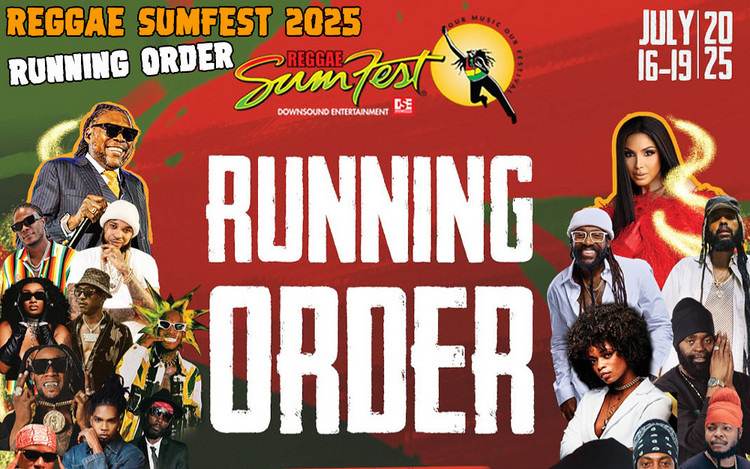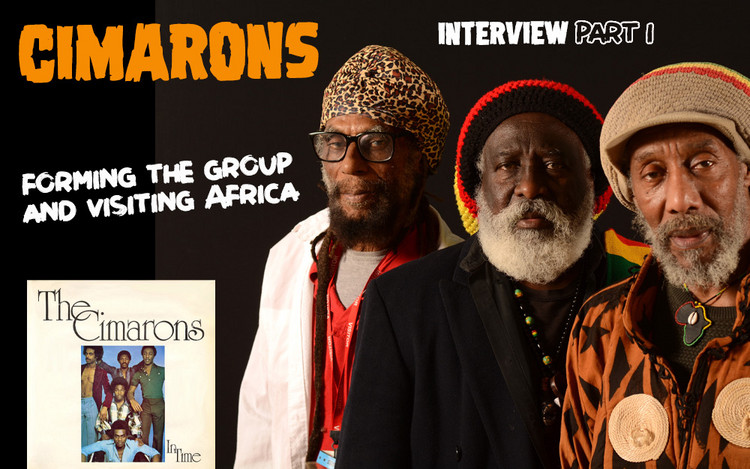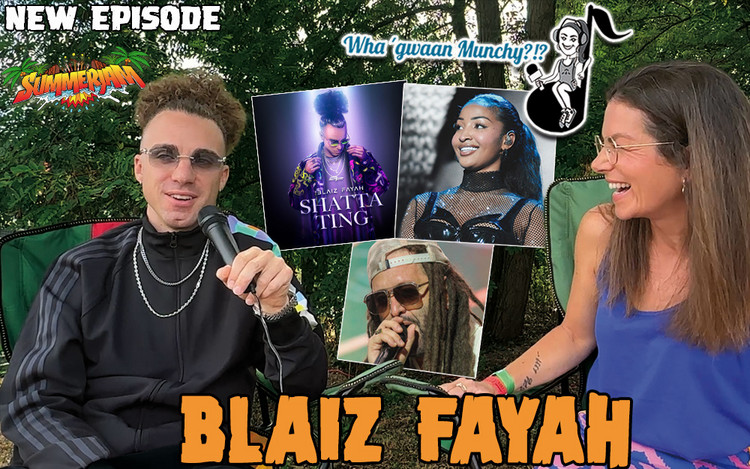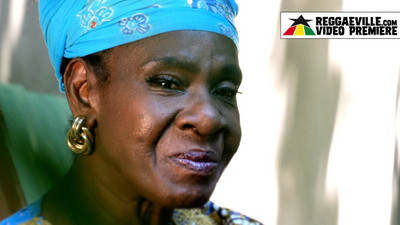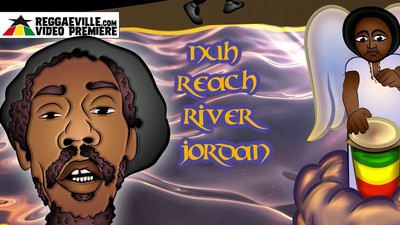Beres Hammond ADD
Interview with Beres Hammond - One Love, One Life
11/13/2012 by Stan Smith
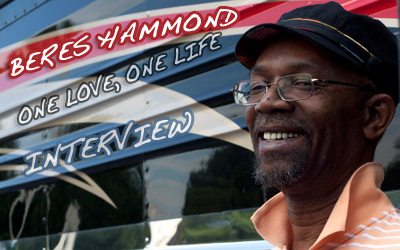
Beres Hammond, described by OkayPlayer as “the Barry White….the Teddy Pendergrass, and the Frankie Beverly & Maze of the Caribbean”, is arguably Jamaica’s greatest practicing singer/songwriter. For more than four decades, Beres (as he is fondly referred to by Jamaicans) consistently delivers hit after hit in his signature smoky, soulful, vocal style.
Reggaeville.com contributor Stan Evan Smith was able to get Beres to pause from his hectic schedule for a quick interview.
It has been a long time since we spoke.
Let’s bring things up to date.
Let’s start with the new album, One Love One Life, a double album, a first for you. How did this project come about?
We never started out to do a double album. As usual I gave the producers a certain amount of songs, for them to choose 14 songs from. I wanted the album to have only 14 songs.
Too much of a good thing?
(laughing) Out of the many songs I gave them to choose from they decided to do a double album. All of my songs are like members of my family. I don’t have favorites amongst them… In any family you have some who behave in ways that you love, there are some others who behave in some way that you ask yourself, “Lawd Gad, why do I have to tell people that this person is my family?” Even the ones who behave in some boisterous ways, they have to do what they do in order to be themselves. I still appreciate them, because I enjoy a little laugh here and there. They have to be there to make the equation one that Beres loves.
Do you have any particular objective for this album that is different from your previous albums?
No, no, no I never tried ever in my life to take myself out of the equation of what is happening around me. What I try to do is to make sure I contribute to whatever the state of music is, at the moment and give my little contribution to it.
With all due respect you are being modest; I think your contribution is a tremendous...
...you might have to change my name to modesty…because this is always how I have been…. I have been this way because everybody’s contribution is important. Because you can’t be number one forever. Somebody is going to pull you out of that spot. Knowing all this, what I do is to continue to do what I have always been known to do.
You have a show on December 12 at the New Barkley’s Arena (The New Jersey Nets new Basketball Arena in Brooklyn) with Ali Campbell (former UB40 lead singer), Shaggy, and Maxi Priest. When will you be touring to promote the One Love One Life album?
The Sounds of Reggae Concert on December 12 is a stand-alone show, and I’m very happy to perform on that show. However touring to promote the new album will be next year.
![]() As a tribute to Beres’ musical legacy, Penthouse Records producer Donovan Germain recorded a double album of songs from Beres’ catalogue entitled “My Favorite Beres Hammond Songs.” The project includes various artists including Jah Cure, Tarrus Riley, Busy Signal, Tessanne Chin, Richie Stephens, Marcia Griffiths and Nadine Sutherland.
As a tribute to Beres’ musical legacy, Penthouse Records producer Donovan Germain recorded a double album of songs from Beres’ catalogue entitled “My Favorite Beres Hammond Songs.” The project includes various artists including Jah Cure, Tarrus Riley, Busy Signal, Tessanne Chin, Richie Stephens, Marcia Griffiths and Nadine Sutherland.
How do you feel about this honor?
That Donovan Germain and the musicians involved have come up with something like that for a person like me… how do you expect me to feel? I feel naked, that people could take your works, and take it as seriously as they have done on this album. I want to give kudos to Donovan Germain. It was something I never anticipated or expected, but when it comes around, I have to give thanks to not just the artists and the musicians but to all the folks who thought that this was something that should have been done.
This is rare, and in the case of Jamaican music this is a first.
It is a first… (laughing) I had to ask Donovan, “What are you trying to do … kill me off?”
Did you know beforehand that he was going to do this album?
Donovan Germain approached me when the project was finalized, and told me he wanted to talk to me about something, I ask him what it was about, he said he did a project…..
(interrupting) Wait a minute he never told you before he started?
NO, it was after everything was done, he said he wanted to talk to me… He said we did a tribute to you. I said tribute for who? He explained that it was done out of respect… and that all the participating artists wanted to make it a part of their lives. They wanted to show how much they appreciate me. So I gave my okay to the project. For me after looking back on everything, for anyone to have thought about doing this for any person, it is a wonderful thing. It is a wonderful feeling.
In one of my earlier interviews with you you mentioned that the musical standard bearers you looked up to while you were coming up were Otis Redding, Sam Cooke and Alton Ellis…
I still mention them as standard bearers.
Yet you have evolved to the point where you have become one of those persons as a reggae singer… someone who is now looked upon as standard bearer?
No, no, no… Let me be clear, I never considered myself a reggae singer. I always called myself a singer… Meaning you can interpret anything anywhere in the world. I am so fortunate to have been a part of this reggae movement… one would easily call me a reggae singer. At this point I would not even fight you in saying what you just said…but I am a singer first. I am blessed to have been a part of this great movement of Jamaican reggae music. That is the kind of music that has propelled me into being, as this small little dot on the map, as far as Beres is concerned. I am very happy with it. I am looking forward to attaining more substantial status, but until it comes I am still happy.
Having performed all over the world are you surprised at the way reggae music has impacted the lives of peoples from different parts of the world?
No… people sometimes misunderstand what it is. The sound of reggae music turns up a lot of antennas all the while, but one has to have substance within your deliverance so that people can stay at a show for three hours just to listen to the music. What you are saying to them with the rhythm gives them reasons to want to live more. In reggae you will find an artist running on stage, the crowd (raves) and jumps up and down, but after three songs he has nothing left. There is a the difference, not just with me, but with the singers and early pioneers -- like Max Romeo, Burning Spear, and Third World. The audiences take time out to listen to the lyrics of their songs; not just to the rhythm. Yes, they dance to the rhythm but they start listening to something else. If you don’t have that extra something for them to listen to, your little goose is cooked. I am happy that for the few years that I have been in the music, I have seen where the audiences have taken the time to listen to what I am saying and, have become a part of my life.
You have your own studio and recording label. Are you grooming young artists?
I have always been doing that. The first time I had a chance to tour by myself I carried new artists with me, covering all the expenses for everybody. At the end of the day I end up not getting what is supposed to be mine…understanding that the work I am doing is not just for me. It is for the longer term.
While I have always been grooming new talent, the music business has now changed and is challenged by technology. It is not like it used to be. Internet websites allow the public to download songs for free without the artist being financially rewarded. That’s not good for me or other artists. The music isn’t selling like it used to. However, I will continue to work with it in the hope that the business will take a 180 degree turn. But I feel very optimistic and hope the piracy will be regulated and that cheaters will be held accountable for downloading artists’ music without the artist being paid. Many artists are suffering because of this.
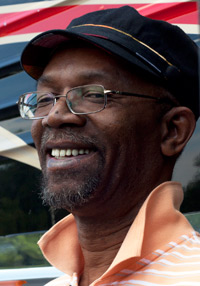 Are you amazed at the way audiences around the world have responded to reggae music?
Are you amazed at the way audiences around the world have responded to reggae music?
Usually I am, the growth has been truly amazing. I started performing in countries around the world back in the 90’s. And now it feels like this is the way the world should be. When you go to Europe on any given summer day, they have more festivals than we could ever dream of here in Jamaica. We only have one little festival in Jamaica -- a three event called Sumfest. In Europe they have 10-day festivals with up to 60,000 people attending each day. And, the festivals are reggae festivals! So how can I not be proud of the strides that we have made, the improvements? It’s amazing to me… it still has me feeling a kind of way, man. This has me feeling humbled. I am humbled. Even though they don’t pay me what they are supposed to pay me in accordance with how the festivals are really structured… I still want to be a part of this movement.
You have come a long way from your early career. What how do you feel about where you are today?
When I first started out in Jamaican music industry in the 1970’s, it was easy for producers to steal the rights of an artist’s song. The artists’ rights were not protected. I realized how bad the situation was when I sang my first big song “One Step Ahead” in the 1970’s. Unlike the American music industry where artist copyright protection was in place, in Jamaica I never had that kind of system to protect me. Even though the Jamaica copyright system was not developed and I, as an artist not protected. I was not bitter against the government or the music industry. Though I was alone as an artist, I knew in order to survive I had to fight to make sure my voice was heard. Despite all that I went through, the tough times, the struggles I was very happy. You know why, because those lessons taught me how to be myself. I never listen to those who told me what I should do if I wanted to make it. Instead, I said no I am not doing it that way. And I have been able to maintain my status.
In an interview with you in 1991 you told me that there are certain stage shows I would never see you on…
(Emphatic) THAT HAS NOT CHANGED. I don’t want to be on a stage show singing about love and the person who comes before or after me starts singing “man fi dead” and “(brain) marrow fi splatter”. I do not want to be on those shows. Those things are childish business… a Romper Room business that. I am a professional, my son. I DON’T WANT TO BE A PART OF THAT. To be honest with you, I don’t have to be.
The complaint today is that the Jamaican music being produced isn’t of the quality it was before. Do you have an opinion on this criticism?
Let me speak for myself... I do hope that what I contribute is in keeping with the standards set from back in the days. Right now there isn’t much reggae music (that is produced in Jamaica) being showcased internationally. There is a lot of quality reggae music being produced in Jamaica, but these songs are not being given airplay in Jamaica. What I do hope is that, at some point, we get to an understanding that, this quality music that placed Jamaican music on the map gets airplay in Jamaica. This could increase the presence of reggae music on international charts. Remember that many people who never knew Jamaica, came to know the country because of their familiarity with quality reggae. I do hope that the government and the tourist board would understand that quality reggae is important to Brand Jamaica.
Growing up in Jamaica - did you ever think that Jamaica would be where it is today on the world stage?
I knew that Jamaica would have to be where it is presently. I knew that. Because we had some of the hardest slaves who wanted to get away from slavery, if it took their legs to get away from slavery … (raising his voice for emphasis) “then they would run”. So, the need to run free from slavery was imbedded in us from a long time with all the teachings of Marcus Garvey.
In track and field, Jamaica had one of the most outstanding performances of any country at the Olympics. Do you have any thoughts on what took place in London - on how well Jamaican athletes performed?
“Listen me good nuh man” (if it) hadn’t been for those athletes, and the music, I don’t know Jamaica would have been regarded internationally. I watched all the races. Now I don’t know what kind of bumps you call them. When I watched our athletes, some bumps come up on I, and some people call them goose bumps. I don’t have any goose in my family. Some things came up on my structure (body). I am saying even if they placed last, what I saw out there representing my country was pure heart and soul …
It gave you a sense of pride…
Yes... PRIDE, MAN… I had a show to perform… They told me it was time to get on stage. I said I wouldn't leave until the race was over. That is how I felt about them.
Thank you very much Beres, and as always it has been a pleasure.
I thank you very much. I am just hoping that I wasn’t a bore. I just want to say much love and much respect to you and all the reggae fans out there.




